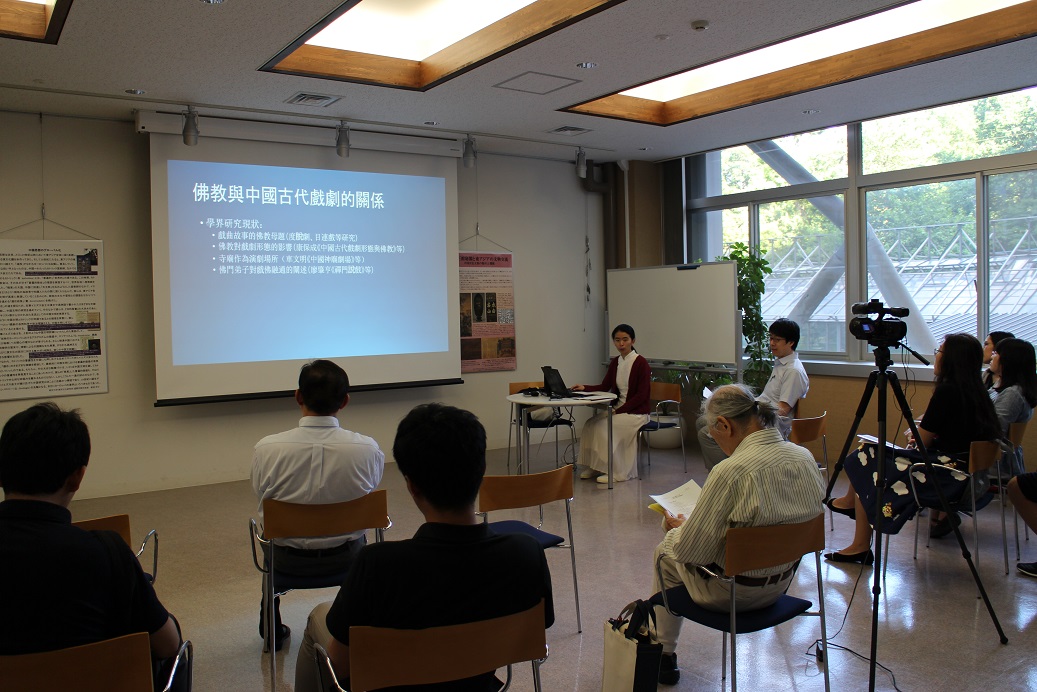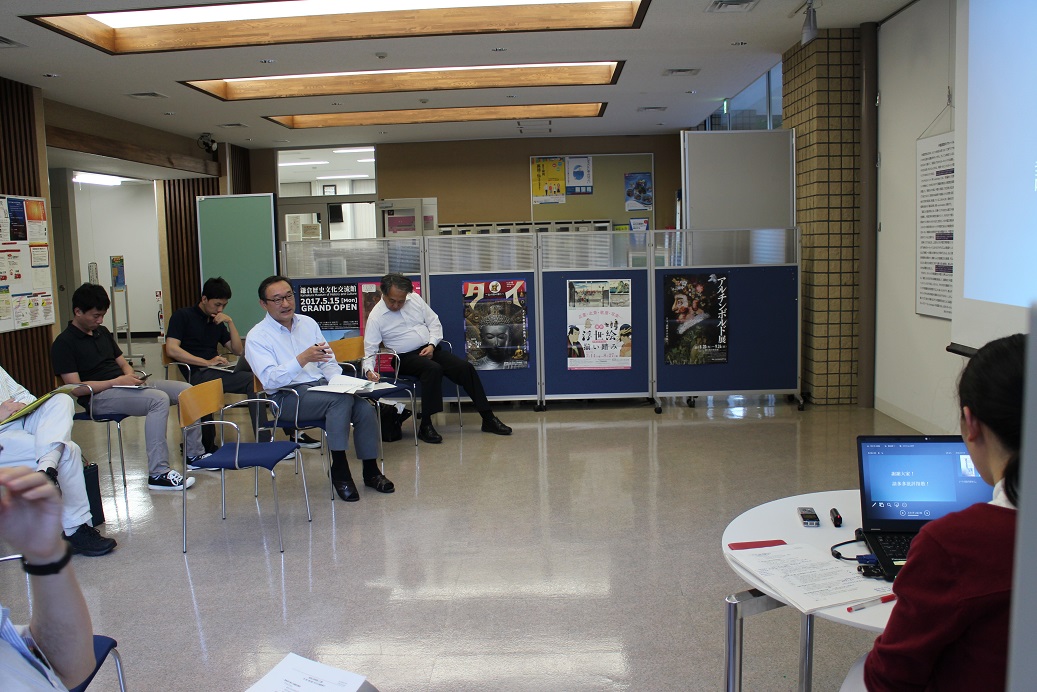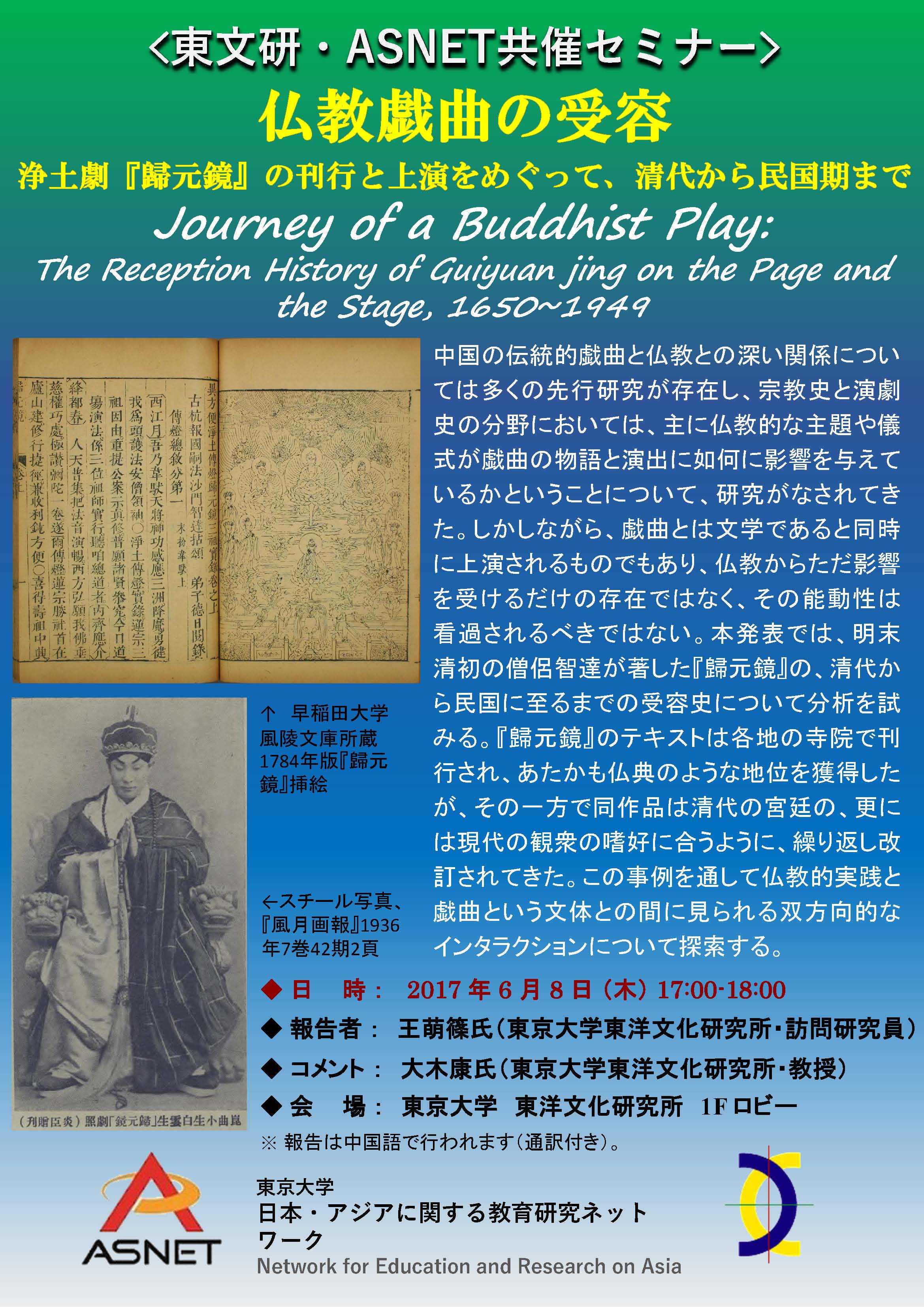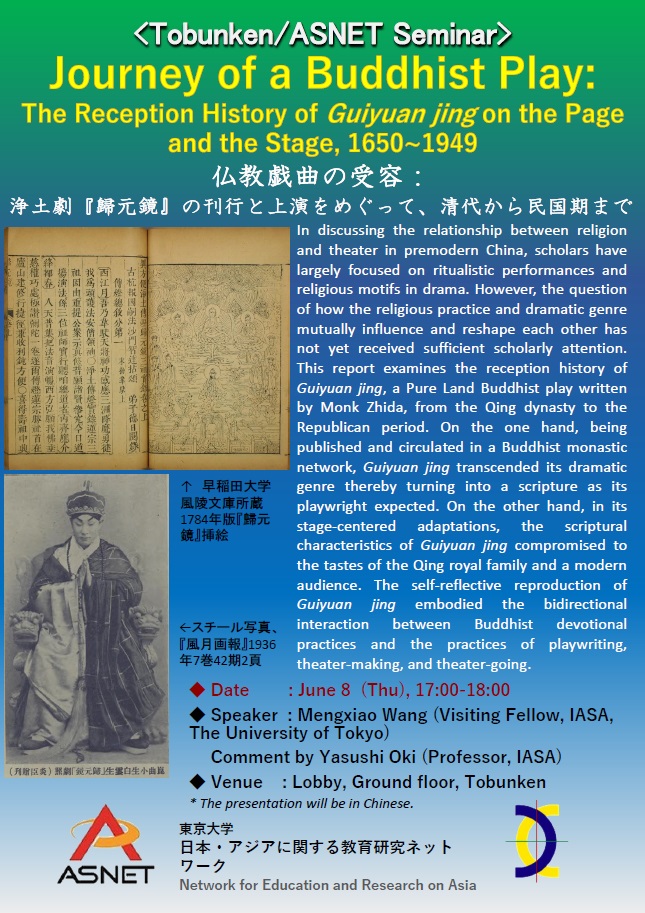以下の通り、第167回目の東文研・ASNET共催セミナーを開催します。
| 日時/Date | 2017年6月8日(木) 17:00-18:00 June 8 (Thu), 5:00-6:00 p.m. |
|---|---|
| 会場/Venue | 東京大学 東洋文化研究所 1階 ロビー Ground Floor, Institute for Advanced Studies on Asia, The University of Tokyo |
| 報告者/Speaker | 王萌篠氏(東京大学東洋文化研究所・訪問研究員)
Mengxiao Wang (Visiting Fellow, IASA, The University of Tokyo) |
| 題名/Title | 仏教戯曲の受容:浄土劇『歸元鏡』の刊行と上演をめぐって、清代から民国期まで
Journey of a Buddhist Play: The Reception History of Guiyuan jing on the Page and the Stage, 1650~1949 |
| コメンテーター /Commentator | 大木康氏(東京大学東洋文化研究所・教授) Yasushi Oki (Professor, IASA, The University of Tokyo) |
| 要旨/Abstract | 中国の伝統的戯曲と仏教との深い関係については多くの先行研究が存在し、宗教史と演劇史の分野においては、主に仏教的な主題や儀式が戯曲の物語と演出に如何に影響を与えているかということについて、研究がなされてきた。しかしながら、戯曲とは文学であると同時に上演されるものでもあり、仏教からただ影響を受けるだけの存在ではなく、その能動性は看過されるべきではない。本発表では、明末清初の僧侶智達が著した『歸元鏡』の、清代から民国に至るまでの受容史について分析を試みる。『歸元鏡』のテキストは各地の寺院で刊行され、あたかも仏典のような地位を獲得したが、その一方で同作品は清代の宮廷の、更には現代の観衆の嗜好に合うように、繰り返し改訂されてきた。この事例を通して仏教的実践と戯曲という文体との間に見られる双方向的なインタラクションについて探索する。
In discussing the relationship between religion and theater in premodern China, scholars have largely focused on ritualistic performances and religious motifs in drama. However, the question of how the religious practice and dramatic genre mutually influence and reshape each other has not yet received sufficient scholarly attention. This report examines the reception history of Guiyuan jing, a Pure Land Buddhist play written by Monk Zhida, from the Qing dynasty to the Republican period. On the one hand, being published and circulated in a Buddhist monastic network, Guiyuan jing transcended its dramatic genre thereby turning into a scripture as its playwright expected. On the other hand, in its stage-centered adaptations, the scriptural characteristics of Guiyuan jing compromised to the tastes of the Qing royal family and a modern audience. The self-reflective reproduction of Guiyuan jing embodied the bidirectional interaction between Buddhist devotional practices and the practices of playwriting, theater-making, and theater-going. |
| 使用言語/Language | 中国語(通訳付き)/Chinese(Interpretation Available) |





